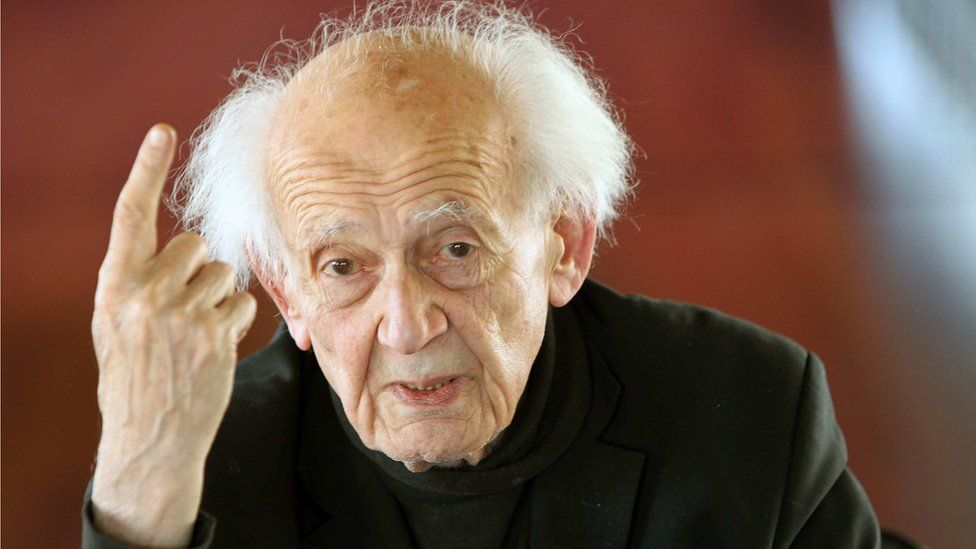Renowned sociologist Zygmunt Bauman dies in Leeds
- Published

One of the 20th Century's most influential sociologists, Zygmunt Bauman, has died aged 91 in Leeds.
The left-wing thinker was a Polish Jew who fled to the USSR after Nazi Germany invaded Poland. He was loyal to the Polish communists until they carried out an anti-Semitic purge in 1968.
He lectured in Israel and then, from 1971, at the University of Leeds.
A critic of globalisation, he used the phrase "liquid modernity" to describe marginalised and rootless individuals.
The author of more than 50 books, he won several international awards for his explorations of ethics, consumerism, globalisation and modernity. He was regarded as a strong moral voice for the dispossessed.
In his most famous book, Modernity and the Holocaust, he argued that the Nazi mass murder of Jews was not simply a regression to barbarism but was connected to industrialisation. The machinery of the modern state had made it feasible, he argued.
In 2010 the University of Leeds founded the Bauman Institute, which promotes studies in social, economic and political life, in recognition of the professor's work.
Communist collaborator
Growing up in Poland, Bauman experienced poverty and anti-Semitism and that fuelled his commitment to social justice.
He was a controversial figure in modern Poland, having admitted that he had once served in the Stalin-era Internal Security Corps, a military unit.
The Polish Institute of National Remembrance (IPN), which prosecutes Nazi and communist-era crimes, has a file on him. He said that he had a clerical job and denied any involvement in killings.
He campaigned for the dignity of the individual who, he argued, suffered manipulation by capitalist market forces.
Globalisation benefited the rich at the expense of the poor, he argued.
Bauman in quotes
- People do not choose a government that will bring the market within their control; instead, the market in every way conditions governments to bring the people within its control
- In a world of global dependencies, with no corresponding global polity and few tools of global justice, the rich of the world are free to pursue their own interests while paying no attention to the rest
- The real problem is why, under certain circumstances, decent people who are good husbands, neighbours and so on, participate in atrocities. That's the real heart of the problem
- Somehow, the ability to resist is not fully dependent on social conditioning
- Man is in his short sojourn on Earth equal to God in His eternity.